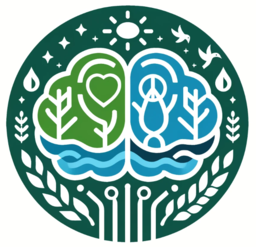Agriculture
Our proposed Agriculture initiative aims to strengthen food security and reduce crop losses in rural Malawi and Zambia. By integrating AI-driven soil and plant health diagnostics, predictive analytics for farming cycles, and sustainable yield optimization, we seek to empower communities to consistently feed their families and local community centers, such as the Malawi Center.

Current Work & Achievements
AI4Good2 has conducted on-site visits to villages in Malawi and Zambia, and additional site visits are needed to assess current agricultural practices and challenges. Photos from the February 2025 site visits include:

Above a young girl in the Malawi village is standing in a cornfield; stable crop production is critical to the livelihood of the village.

On the left children have lined-up for food at the Malawi Center, showing the demand for sustainable nutrition. While these initial visits provided valuable insights, formal AI-driven experiments are still in the fundraising phase, with the goal of launching within the year.
In the photo on the right, Dr. Terry Janssen stirs the large pots feeding 800 children in Malawi, many of whom would otherwise have no meal. There is a critical need for sustainable agriculture and AI is proving to be a valuable part of the solution.

Challenges & Needs
Local farmers face unpredictable climate patterns, limited resources for crop disease management, and minimal access to data-driven guidance. To address these, AI4Good2 requires:
Funding for pilot programs, training, and supply of necessary equipment (drones, sensors).
Technological Infrastructure to deploy AI tools in areas with limited internet connectivity.
Expertise from agronomists, data scientists, and local extension officers to tailor solutions to each region’s needs.
Future Vision & Expansion
In the long term, AI4Good2 envisions:
- Expanded training programs for farmers, equipping them with tools and skills to boost crop yields.
- Collaboration with NGOs and research institutions to integrate advanced AI analytics for climate-adaptive farming.
- Scaling the model to additional regions in Africa, ensuring widespread food security and economic stability.
